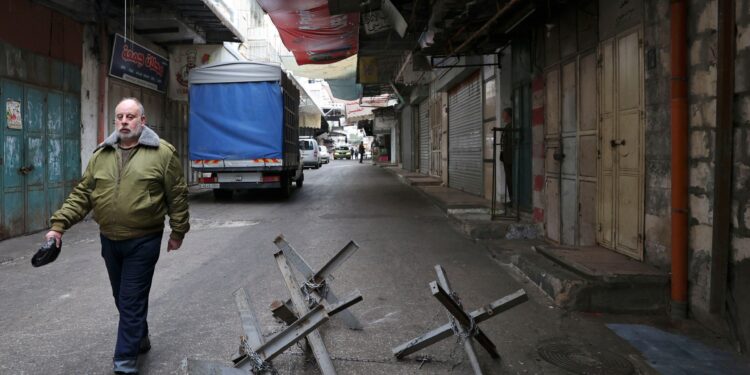“Israel is strangling the West Bank economy,” with this title The Economist magazine began its article today, Saturday, as one of the officials believes that the current economic crisis is worse than the one resulting from the closures due to the Corona virus two years ago.
The British magazine warned that since October 7, the date of the start of the Israeli aggression on Gaza, the work permits of about 160,000 Palestinians who were working in Israel and the settlements in the West Bank have been cancelled. There are also tens of thousands of others who were working illegally. Before the war, their salaries pumped about 1.4 billion shekels ($370 million) per month into the West Bank economy.
She pointed out that the Palestinian Authority’s lack of control over its supposed borders forces it to rely on Israel to collect import taxes (clearance funds) on its behalf, which represent 64% of its total revenues.
She pointed out that when the Gaza War broke out, the far-right Israeli Finance Minister, Bezalel Smotrich, refused to transfer any of this money to the Palestinian Authority, although the Israeli Cabinet later reached a settlement, and said that it would withhold the portion that the Palestinian Authority pays to Gaza.
She added that although the Islamic Resistance Movement (Hamas) has controlled the Gaza Strip since 2007, the Palestinian Authority still covers Gaza’s electricity bill for Israel and pays the salaries of thousands of public sector workers, including those working in the Ministry of Health and the Palestinian security forces, who They get paid to stay in their homes.
These two factors have led to a decline in the Palestinian Authority’s revenues by 80% since October 7, leaving Palestinian Finance Minister Shukri Bishara facing a fiscal deficit of $1.5 billion (about 10% of the GDP in the Palestinian territories).
Last November, his ministry was unable to pay the salaries of public employees at all, although he was able to convince the Bank of Palestine to provide loans to some employees worth half their salaries.
The magazine believes that to stave off the financial collapse of the authority, Bishara could try to persuade Smotrich to hand over customs revenues. But there is little sign that he will change his mind, although the United States has tried to alert him to the security risks if the Palestinian Authority goes bankrupt.
She concluded that providing what she described as “charities” from some countries may also allow the Palestinian Authority to ignore the reforms it desperately needs. It could also provide a lifeline to “a sclerotic and corrupt institution that few Palestinians believe can establish a Palestinian state,” as the Economist puts it.



